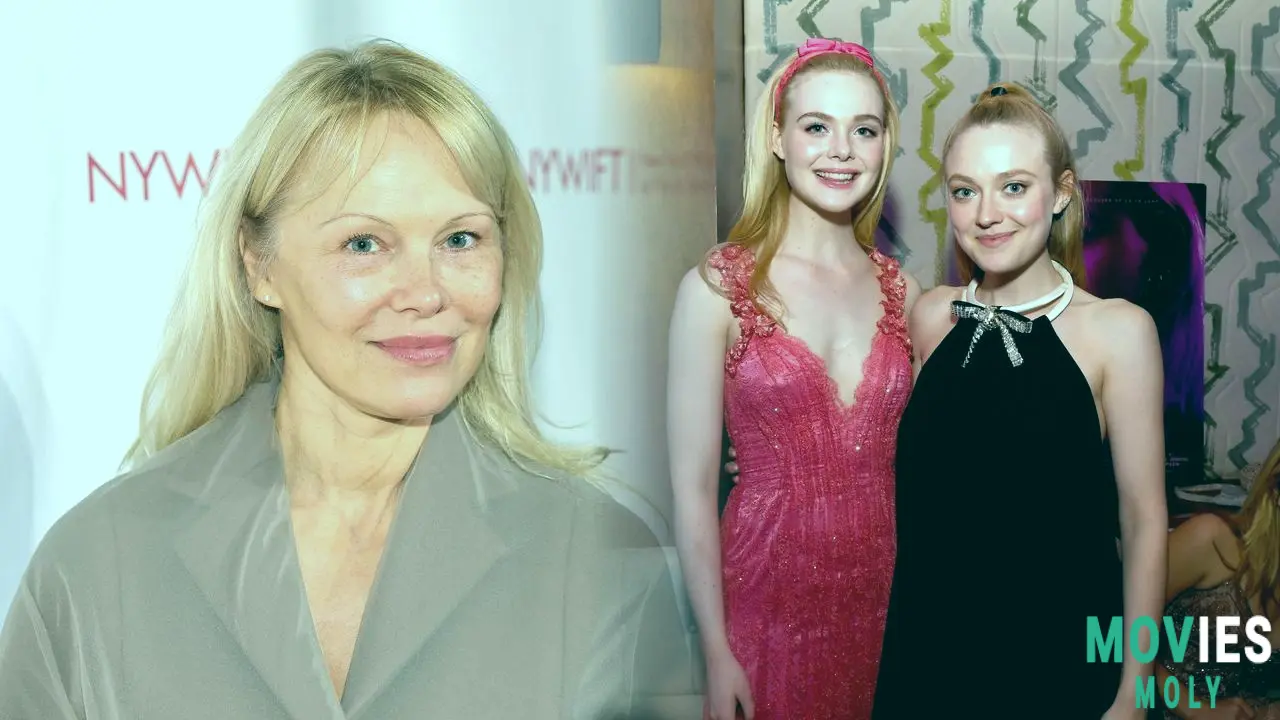There’s a certain alchemy to Dakota Fanning’s career—a blend of early stardom, thoughtful role choices, and a quiet maturity that only deepens with time. Now, with her upcoming collaboration alongside Pamela Anderson and Lindsay Duncan in Sally Potter’s family drama Alma, Fanning is once again proving that she’s among the most compelling actors working today, without ever needing to shout for attention.
From Child Prodigy to Golden Globe Nominee: Dakota Fanning’s Steady AscentFanning’s trajectory is the kind of creative evolution that genre fans crave in their superhero universes: consistent, meaningful, and full of layers. While her sister Elle Fanning has already worked with Potter on Ginger & Rosa and The Roads Not Taken, Dakota’s entry into the British director’s world with Alma feels like a long-awaited convergence of talent and tone. It’s not just a reunion of sorts—it’s a next-level step for an actress who’s seamlessly transitioned from blockbuster youth roles to indie prestige stardom.
“Alma is a brilliantly clever, funny, and poignant story of a family in conflict at the most sensitive of times,”” Bankside Films’ Stephen Kelliher said in a recent statement. And with a script like that, written by a filmmaker who once reimagined Orlando for the screen, the cast isn’t just filling roles—they’re bringing emotional gravity to a story about love, loss, and the comedic chaos of familial secrets.
‘Alma’ Promises to Be More Than a Family Drama—It’s a Cinematic Haunting

Set to begin production this September in England, Alma centers on an extended family gathering to scatter the ashes of their mother. But her presence lingers—literally—and what starts as a somber farewell quickly spirals into a ghostly unraveling of hidden lives. Variety reports that the filmmakers are keeping character details under wraps, but with a cast like Fanning, Anderson, and Duncan, every moment is bound to resonate.
Sally Potter described her casting process as a “treasure hunt,” and calling Dakota Fanning a “cinematic jewel” feels more like an understatement than praise. Potter’s desire to work with Fanning, alongside the likes of Anderson and Duncan, speaks to the kind of emotional precision she’s after. Dakota doesn’t just act—she inhabits. And in a story about haunting memories and explosive family dynamics, her presence is sure to ground the film in something real and unshakable.
Behind the Roles: Dakota Fanning’s Grounded Glamour and Everyday Elegance

Off-screen, Fanning is the portrait of effortless sophistication—a contrast to the intensity she brings to roles like Ripley and Once Upon a Time in Hollywood. In a recent Harper’s Bazaar feature, she revealed a beauty routine as practical as it is polished. “My makeup usually takes five minutes,” she says, confessing her longtime love for Clé de Peau Concealer, a trusty product she’s relied on since childhood. It’s the kind of detail that mirrors her career approach: simple, effective, and consistent.
Her skincare mantra? Never skip removing makeup, even when exhausted. Her self-care ritual? A nightly bath, or sometimes two, as a “grounding thing” in a life that often whisks her from one unfamiliar place to another. It’s easy to imagine Fanning’s approach to acting mirroring this—finding grounding in character, no matter how chaotic the story around her becomes.
And then there’s the advice from Karl Lagerfeld that she’s taken to heart: never let anyone touch your eyebrows. It’s a small rebellion, but one that fits with Fanning’s overall vibe—she enhances what she has, never masks it. In a world obsessed with transformation, Dakota’s constancy is her superpower.
What ‘Alma’ and Fanning’s Career Reveal About Strength, Subtlety, and Stardom

There’s a striking parallel between Dakota Fanning’s career and the kind of storytelling that resonates in franchises like Marvel and DC—where internal conflict often trumps external spectacle. Fanning may not wear a cape, but her emotional intelligence and screen presence give her a hero’s resonance. She’s the type of actor who uncovers hidden layers in a script, much like a comic writer unearths backstory in a one-off issue that changes everything.
With Alma, Dakota steps into a role that’s likely to echo across her filmography—a character caught in the storm of family, memory, and revelation. And given Potter’s track record of turning scripts into soul-bearing experiences, this isn’t just another film. It’s an event in disguise.
As the industry continues to chase the next big blockbuster, it’s voices like Fanning’s that remind us where true power lies: in presence, in nuance, and in the courage to keep evolving. Dakota Fanning isn’t just surviving the transition from child star to adult actor—she’s mastering it. And that’s the kind of evolution worth celebrating at Cannes and beyond.




